The Unbreakable Student: 6 Rules for Staying Sane at University
£11.40£14.20 (-20%)
‘Equal parts practical, funny and illuminating – belongs on the required reading list for life’ – Sarah Knight, internationally bestselling author of Get Your Sh!t Together
Accessible and inspirational, The Unbreakable Student is the self-care guide that every university student needs.
So, you’re starting university – you’ve learnt what to pack, where to socialise, how to cook (sort of)… but what about how to look after your mental health?
University is a whirlwind of exciting, fresh experiences. But it can also be overwhelming. You’re in a strange new environment and faced with the pressure to make friends, complete difficult assignments, stay healthy, manage your finances and so much more, all while being away from your loved ones. In this time of massive change, looking after your mental wellbeing is more important than ever.
Nic Hooper has witnessed the student mental health crisis unfolding every day on campus and is determined to help. A psychologist with fifteen years’ experience teaching and mentoring young adults, The Unbreakable Student is his guide to navigating your university years and staying sane using six simple rules:
· Using exercise to stay healthy in body and mind
· Learning to positively challenge yourself
· Connecting with your peers
· Mindfully embracing the moment
· Managing self-critical thoughts and vulnerability
· Giving to others and taking positive action
Read more
Additional information
| Publisher | Robinson (1 July 2021) |
|---|---|
| Language | English |
| Paperback | 256 pages |
| ISBN-10 | 1472145399 |
| ISBN-13 | 978-1472145390 |
| Dimensions | 15.24 x 1.91 x 23.5 cm |

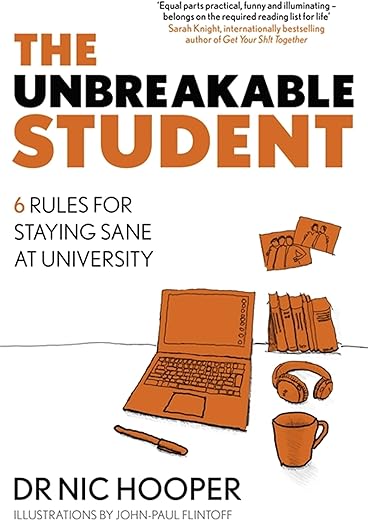
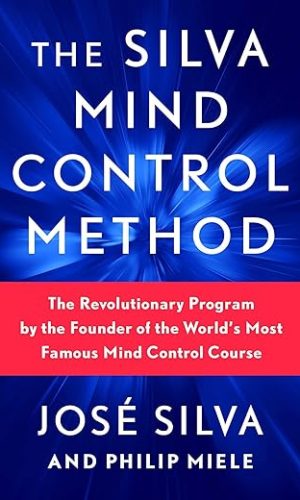
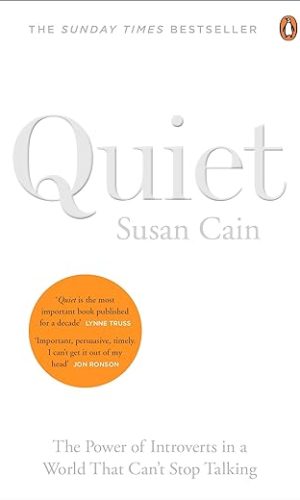
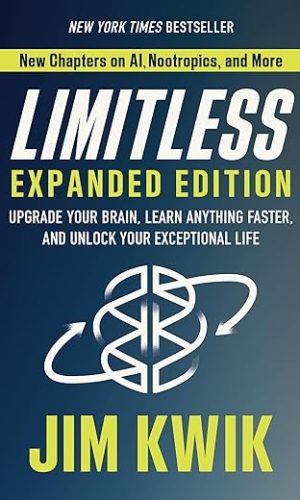
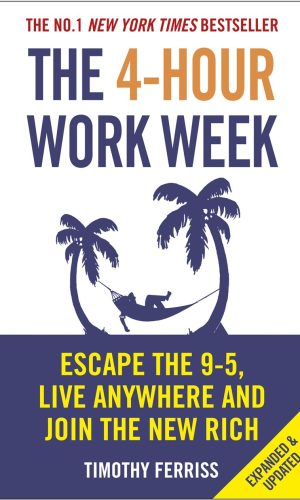
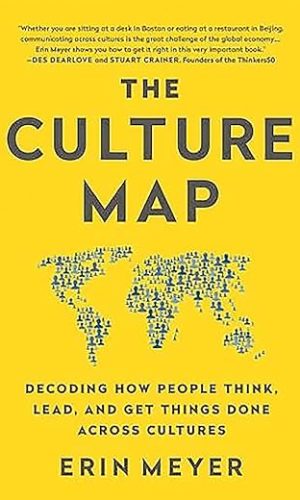

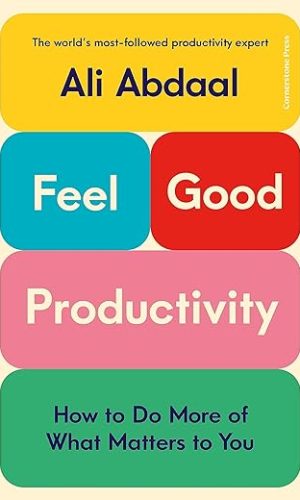
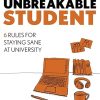
by liv101
This is a wonderful and highly recommended student guide. ACT processes are cleverly interwoven into the 6 Ways of Well-being. These important messages are set within a relatable, very funny and deeply humble personal story.
I really enjoyed this book from an educator’s perspective. The main barriers to students’ engagement at university are their own internal ones. Often self stories, comparisons, procrastination and avoidance are elements that prevent the student getting the most out of their learning experience. This book is so unique in its ability to address these barriers in a very fun and engaging way. The ACT processes are presented in a humble manner so I found myself keen to try them out. I can imagine any student feeling the same way. There are no preachy undertones (phew).
The author clearly has experience working with students because the messages are based on real life scenarios and this of course draws the reader in. I loved the stories of the young author finding his way in the world through making mistakes (the tennis story was hilarious). There were several laugh out loud moments and a few teary ones too.
I can confidently recommend this to my students knowing they are in safe hands as they strengthen their psychological well being.
by Karolina
I am a current university student, and this book that Dr Nic has written had been a utter helping hand. Not only do I feel people of all ages should read but students along with their parents too. I myself wish i had read this book prior university, (hindsight is a wonderful thing right?). But truly, I feel reading a book like this gives not only a entertaining, personal, real, eye opening perspective and read but Nic in the book guides you through and is that helping hand. As a dyslexic I usually don’t go to a book for a read but i can assure with the writing style and presentation of the book it could not have been a more flowing, interesting, incredible read. Going through a sticky time and myself and my mum would be reading this on the daily, it provides helpful practical advise with science behind it and years for experience. Not only is this book from an author of great academic achievement but at the end of the day a normal, down to earth open guy in which in times of ‘not feeling normal’ – makes you realise that actually, you are and life throws things at you. All students, please give a read as I now use such a book as a reminder and safely blanket, its part of the toolkit. Parents, read and go through yourself, it gives a whole new insight and ways to help your child, in times of need and also in general life. thank you for this read
by Stuart J Randall
The Unbreakable Student by Dr Nic Hooper is a masterpiece that can contribute to improving students’ well-being. With the pressures of assignments and deadlines, students often forget to take care of themselves and their mental health. The Unbreakable Student not only offers some practical tips on how to stay sane at the university but also offers a way of thinking that can be beneficial for a lifetime. As it had not been enough, everything is based on scientific research. The way Nic presents it is excellent as you feel like he is an older friend offering you some guidance and advice. This is something that so many young people are looking for at that stage of life. As a psychology student, some concepts were already familiar to me, but I believe the whole book might be life-changing for students from other fields. Personally, the book has changed the way I think about myself and act. It helped me to reduce the inner judgements I hold towards myself and made me feel more comfortable in challenging situations. Nic explained well the concept of ACT, which was new to me. The book motivated me to read further and left me full of hopes for a happy life! I recommend this to everyone who would like to live happier and calmer. I already bought a second copy and gave it to a friend!
by Stuart J Randall
The Unbreakable Student book review
I will start this review by saying that I do not personally know the author and have no affiliation with the publisher. I purchased this book with my own money from Amazon.
I first came across this book when I heard Nic (the author) speaking on a podcast called ‘Psychologists off the Clock’. I tend to listen to podcasts that have an Acceptance and Commitment Therapy (ACT) flavour to them, and which are also about working with adolescents since this is an age range I currently work with. Nic’s ability to relate complex psychological concepts to the real world, using his own experiences, and deliver these in an easy-to-understand manner is what made me purchase this book.
What we get here is a book of around 230 pages (index not included) split into 8 chapters. These are an intro chapter, a chapter each for the 6 ways to wellbeing (exercise, challenge yourself, connect with others, give to others, self-care, and embrace the moment), and then an ending chapter. At the end of each chapter there is a take home message summarising the main points and a couple of tasks that the reader can do to apply the main points to their life.
Toward the end of Chapter 1, Nic writes, “This book will not be dry.” He is certainly correct. I have read many ACT books, and this is probably one of the easiest, most accessible, non-jargon ACT-based book I have come across. No prior knowledge of ACT is required to start reading, and ideas are based around Nic’s experience of his personal and professional life. This is a great way to frame these as instead of speaking about generic circumstances, we can see some of these ideas playing out in genuine situations with genuine consequences. These are written with an easy to read, often humorous, honest and open tone leading to what feels like a connection with the author.
If you are reading this review as an ACT therapist, then I can tell you that the book talks about the main processes. The opening chapter starts to introduce them, along with some gentle creative hopelessness acknowledging that the usual responses (such as avoidance) to unwanted thoughts and feelings are unworkable.
Chapter 2 talks about the important of exercise and how our own minds can get in the way using some evolutionary science and then goes on to introduce the idea of defusion through some helpful metaphors.
Chapter 3 is all about challenging yourself. There is a focus here on the stories we tell ourselves about who we are and who we are not, and what we can and cannot do and how we can be imprisoned by those stories. I found this chapter relatable as I have my own stories that can paralyse me from action. I was in two minds about writing this review since my own self story tells me that no one wants to listen to little old me, or people might find it boring. Nevertheless, I am mindful of those stories and my desire to help others is beginning to push through them.
Connecting with people is the topic of Chapter 4. After reading lots of other ACT books, this was a bit of a standout chapter for me due to the section on the psychology of influence and looking at the 6 principles of persuasion. This included some cool old school experiments (would you look up toward the top of a building for no reason other than another person was? How about if 5 people were looking up, would you then?). Furthermore, from my own work in trauma informed services it was nice to see a discussion about instead of saying to someone, “what is wrong with you?”, we should be asking, “what has happened to you?” when figuring out why someone might be struggling, acknowledging how important someone’s context, and learning history are.
Chapter 5 looks at how we can give to others, and identifies many ways through money, time and through relationships. A particular stand out in this chapter, from an ACT perspective, is the idea that perhaps ‘acceptance’ is the wrong word and that ‘willingness’ fits better. Acceptance suggests that we need to tolerate (i.e. put up with) our feelings, whereas ‘willingness’ suggests a more active choice. There are also some helpful points about getting and using feedback from assignments, and also about handling relationships within a university context.
Chapter 6 reminds us that straying outside our comfort zone is good for us, however it is important to come back in for some recuperation and takes us back to basics (which is important as it is often forgotten) in terms of sleeping, eating and exercising. This then expands into self-compassion which identifies that where we find our pain we often find what is important to us, like two sides of a coin that are forever together. Once we have worked out what is important to us, then we get some ideas of how to implement them into everyday action.
Chapter 7 brings up the ‘m’ word. Yes, mindfulness, it is hard to escape any form of self-help book these days without running into this. I think Nic quite rightly points out that mindfulness is annoyingly fashionable at the moment. However, he does recognise the reasons that mindfulness can be important and the purpose behind the skill. No, it is not so we can always remember to breathe in and out, but to recognise that our minds wander off and this recognition allows us to pull it back somewhat and stay for a bit longer in the present moment. There is also a stark reminder here that time is finite, and only goes in one direction, so this moment right now in the present is the only time you will get right now (so why are you spending it reading this?).
To end, Chapter 8 gives a nice summary of the main points, and introduces 10 other tips which are not discussed previously in the book.
So who do I think this book is for. If you are a student about to go to, or currently at, a college or university then this is well worth the time and money reading. If you are a therapist working with this client group then it is well worth the time reading yourself (as there is some really helpful information outside of ACT), or you can recommend the people you work with buy it and then use it loosely as guided self-help.
I think this book can genuinely help people, so I highly recommend it.